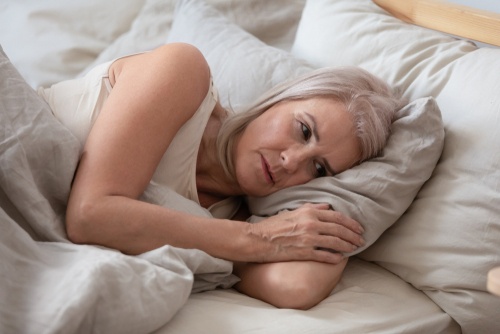
Postmenopausal women with erratic sleep schedules are up to 70% more likely to experience significant depressive symptoms, according to one study. The cross-sectional study, published in Sleep Health, analyzed the sleep patterns and psychological health of 1,197 women, on average, 65 years of age.
Specifically, the researchers collected data on non-invasive sleep measures. These measure included timing of sleep, evaluating the mean midpoint from sleep onset to waking; and the regularity of sleep, which was measured as a standard deviation of midpoint of sleep in hours. The study participants also completed a composite well-being score, the Center for Epidemiological Studies Depression Scale, and the Generalized Anxiety Disorder-7 Scale to assess their psychological health. Following data collection, linear and logistic regression models were used to determine whether associations between sleep patterns and psychological health measures exist.
Adjusting for covariates, researchers found that a sleep midpoint outside the hours of 2:00 to 4:00 a.m. was significantly associated with depressive symptoms. The pattern of sleep was also found to have a significant association with psychological health. Women with irregular sleep were associated with lower psychological well-being, depressive and anxiety symptoms.
“It could definitely be the case that the women in our study who had depressive symptoms had a different type of sleep schedule because they were depressed, or that their depression was causing them to have more irregular sleep-wake patterns,” associate professor of psychiatry at the University of Michigan and study co-author Leslie Swanson, PhD, said regarding the results in an interview with U.S. News.
Dr. Swanson emphasized the importance of getting regular, high-quality sleep to maintain both physical and mental health. She offered several pieces of advice to get the best night’s sleep, which included setting an alarm clock for the same time every morning, seven days a week; getting into bright light as soon as your alarm goes off; avoiding eating large meals within three hours of bedtime; and taking the time to unwind before bed.







 © 2025 Mashup Media, LLC, a Formedics Property. All Rights Reserved.
© 2025 Mashup Media, LLC, a Formedics Property. All Rights Reserved.